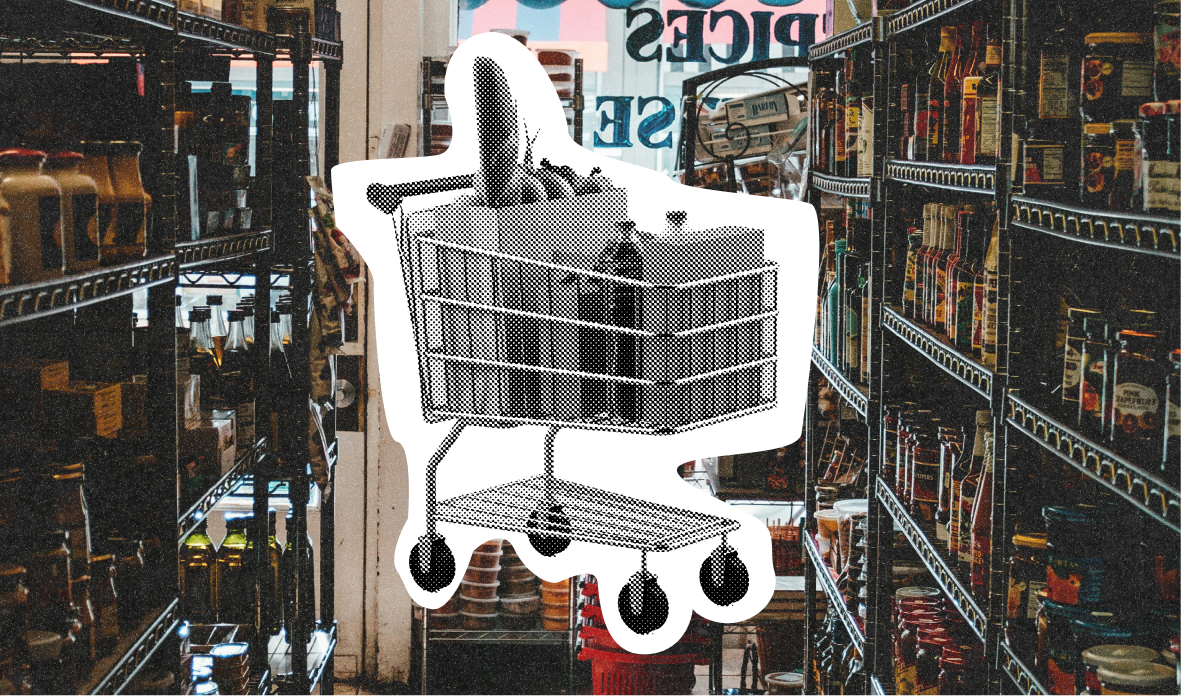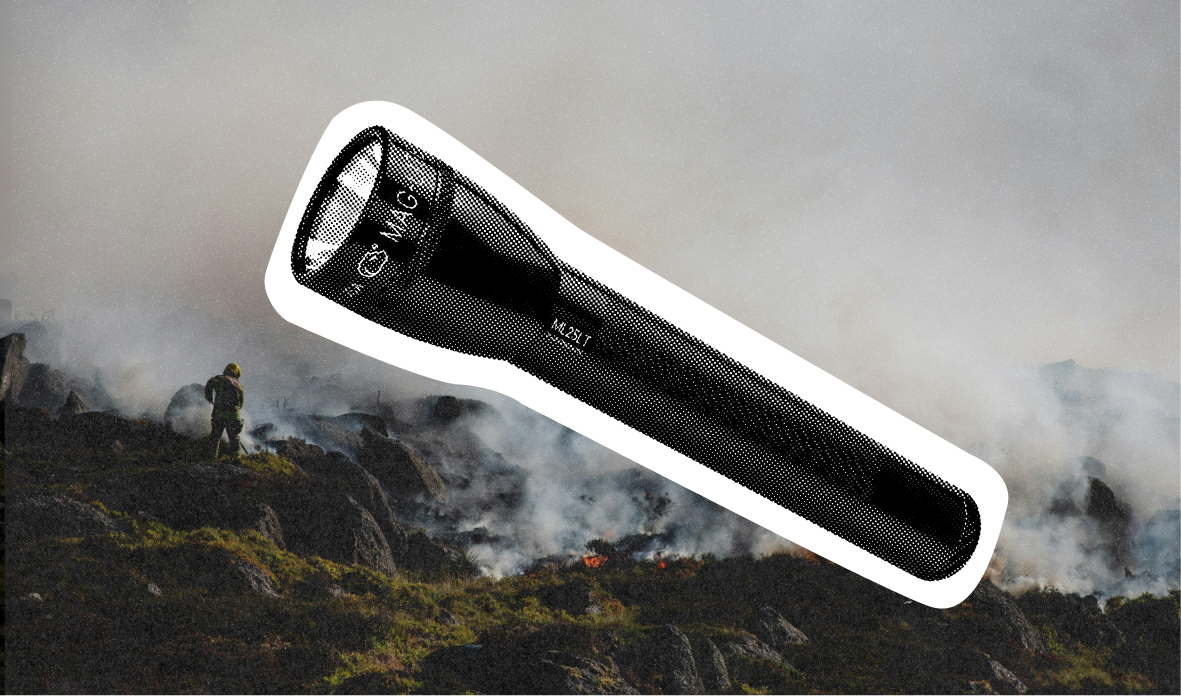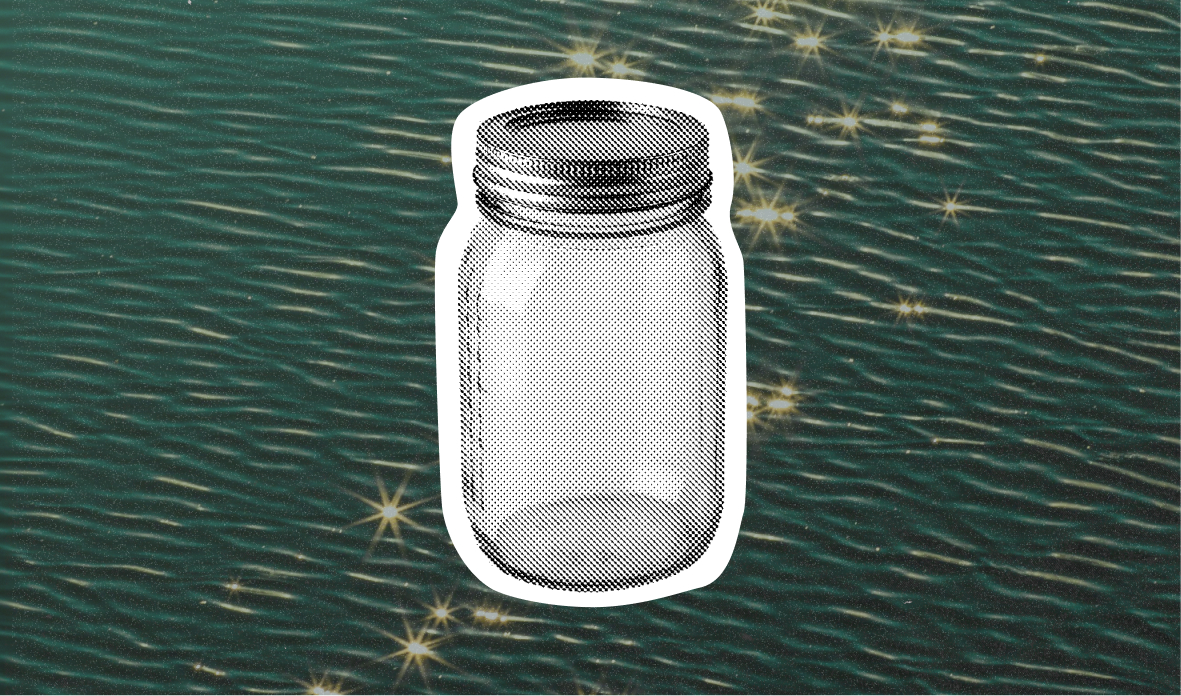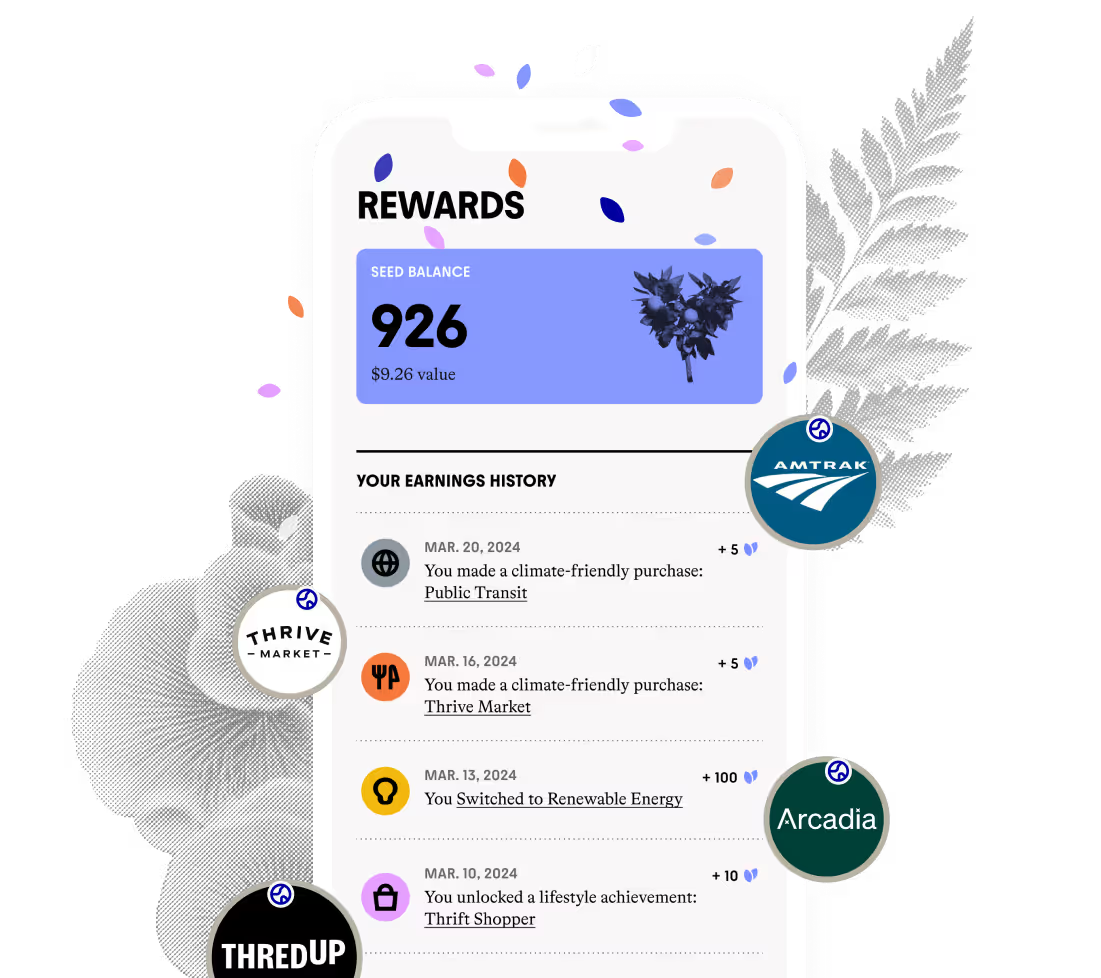Can We Learn to Love Plant-Based Cheese?
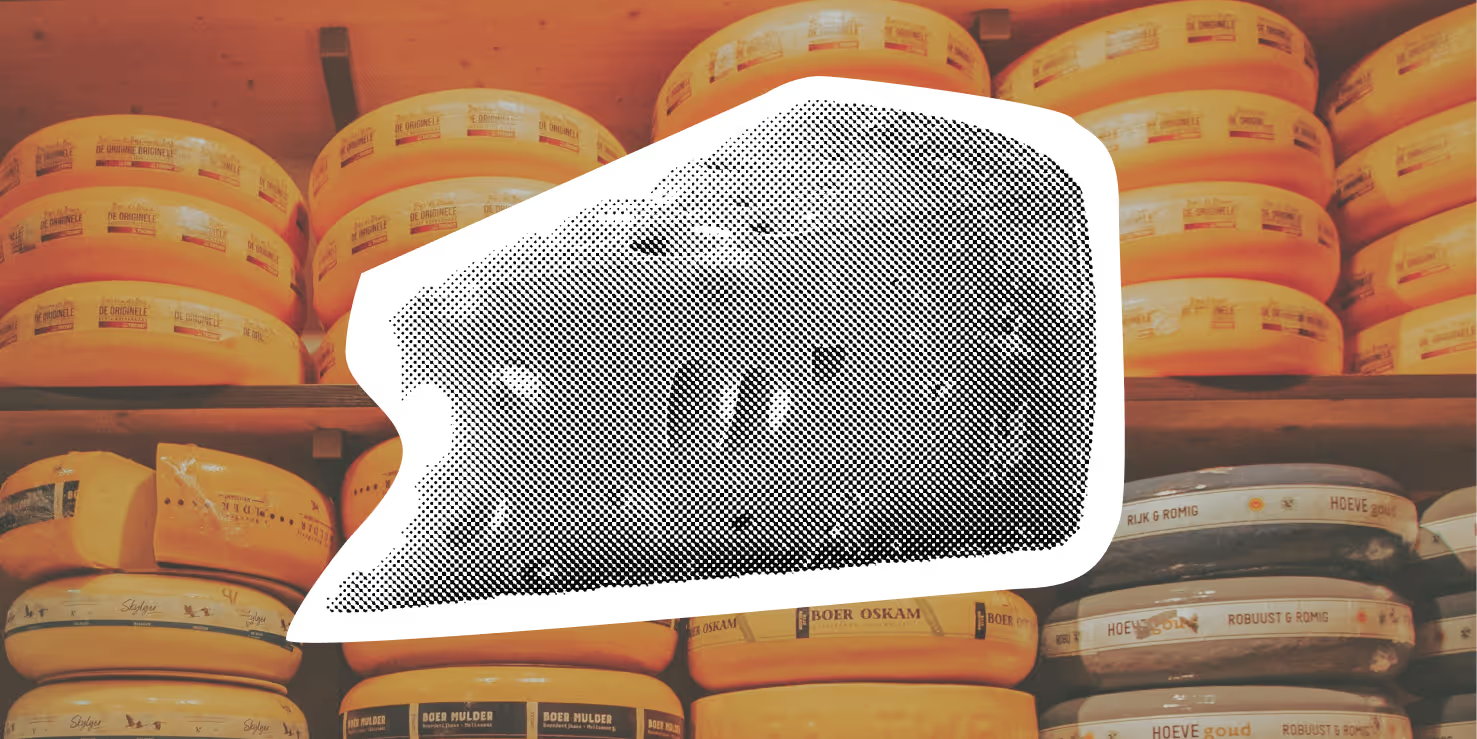
Cheese is delicious. Even aspiring vegans find cheese hard to quit. But making dairy cheese is not only rough on the planet — the dairy cows’ lives aren’t great either. In this episode, we’re getting the full picture of the impact of dairy cheese, including the United States’ decades-long surplus cycle with the cheese industry and how it’s connected to Pizza Hut’s Summer of Cheese.
We’re chatting with famed vegan chef and cheese icon, Miyoko Schinner about how far plant-based cheese has come and her favorite plant-based cheese bases. And we’re learning practical tips to learn to love plant-based cheese.
Here are some of the people you'll hear from in this episode:
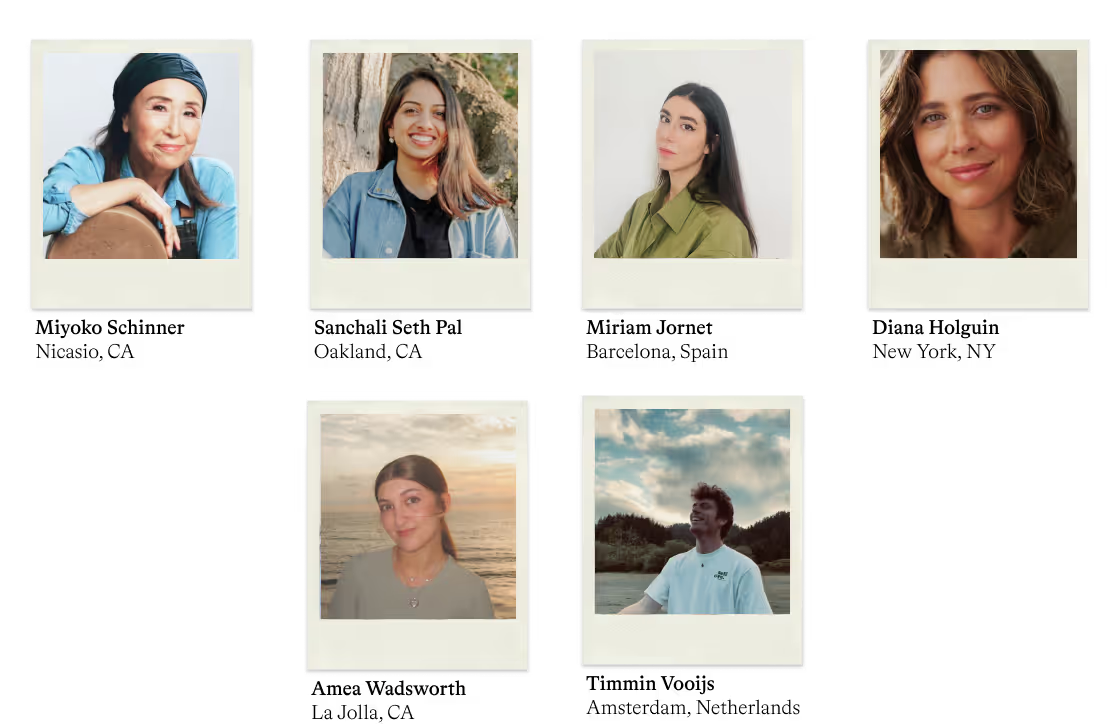
Episode Credits
- Listener contributions: Amea Wadsworth, Diana Holguin, Drew Crabtree, Kenzie Rattray, Melissa Athina, Miriam Jornet
- Editing and engineer: Evan Goodchild
- Hosting and production: Katelan Cunningham
{{cta-join2}}
Full Episode Transcript
Katelan (00:00):
Hello, and welcome back to Second Nature, a podcast from Commons. Commons is the app that tens of thousands of people use to find sustainable alternatives for everything in their lives and get rewarded for it. And on this show, we talk to people about how they're living sustainably in an unsustainable world.
Katelan (00:22):
When Y'all submit to the show, we ask you what's one thing you can't give up? A lot of people say air travel or their car or meat, but there was one answer that kept coming up and we didn't quite expect it. Cheese,
Diana (00:36):
Cheese, cheese, for sure.
Katelan (00:40):
Cheese is pretty objectively delicious, creamy, stringy, crumbly, chewy, salty in all its forms. We just can't seem to get enough these days. There are plenty of plant-based options out there, but are any of them good enough to divert us from dairy,
Diana (00:55):
Vegan cheese? You know, it's come a long way, but it's not the best.
Katelan (01:01):
I'm your host, Katelan Cunningham, and this episode of Second Nature is going to be a doozy. We're talking big dairy and cheese caves. We're talking to chef and plant-based cheese, OG Miko sinner about how the world of plant-based cheese has expanded since she first started. We'll be chatting with commons founders, St. Charlie, St. Paul, about the emissions impact of all this cheese that we're eating, and we'll be hosting our very own plant-based cheese taste test to tell you which brands were our faves. Let's dig in. Of course, we can't talk about cheese without talking about milk. Maybe you grew up like I did, thinking that dairy milk was the end all, be all source of calcium or vitamin D, but that's not the case. And my education failed to mention that dairy milk also comes with a hefty environmental impact on their list of the most climate damaging foods. The NRDC ranks cheese as number four. So why or why did we grow up believing that milk was this perfect food?
Speaker 4 (02:09):
[archival] Dairy products nature's most nearly perfect food.
Speaker 5 (02:15):
[archival] Milk is about the most perfect food. There is a glass full at every meal is good for you. Cheese is a bodybuilder too, and there are many kinds to choose from
Speaker 4 (02:27):
[archival] Because folks need milk every day as much as well, almost as much as the oxygen in the air. Why not tie your future to milk?
Katelan (02:38):
Back then, in the 1950s, folks in the dairy industry were in for a wild ride. People had started drinking less milk, but the farmers still had cows, and those cows were still making milk. So in 1949, the US government started buying up the surplus dairy. In the late 1970s, the government gave $2 billion to the dairy industry. Over just four years, they shipped some of the surplus dairy to soldiers, folks overseas and schools, but there was still way too much so they turned a lot of it into cheese and stored it underground in quote unquote cheese caves. By 1981, the US had over 500 million pounds of cheese stored in 150 locations, and no one knew what to do with it all. One USDA official said
Evan (03:28):
Probably the cheapest and most practical thing would be to dump it in the ocean.
Katelan (03:33):
Thankfully, they didn't do that, but they did incentivize dairy farmers to slaughter 1.5 billion of their cows as a way to slow dairy production. They tried giving away millions of pounds of cheese. Maybe you've heard of government cheese. When the government can't give enough dairy away, big dairy pushes sales. We all know the famous Got milk campaign that started in the nineties, but the industry was also behind initiatives like Pizza Huts, summer of Cheese or Burger King's Cheesy Angus Bacon cheeseburger or Taco Bell's, three cheese steak quesadilla. But none of these efforts have been able to keep up with the surplus. The US has been stuck in this surplus cycle with big dairy for decades, and it's taking a toll on the environment. As of June of this year, 2024, the US has 1.4 billion pounds, billion pounds of cheese and cold storage
Katelan (04:32):
That's comparable to the size of the capital building. And keeping all that cheese cool has got to be racking up a lot of refrigeration emissions and the emissions of making all that excess cheese. That's a lot too. Over 19 million tons of carbon dioxide equivalent emissions, which is like the emissions of powering every New York City housing unit for over a year. And regardless of whether there's a market for the dairy, the cows still need milking. So dairy farmers often have to resort to dumping the excess milk into sewers, which actually causes dangerous algae overgrowth and waterways. In 2023, Wisconsin dairy farmers reportedly dumped 30 to 35,000 gallons of milk per day. The reason that so many of us Americans have grown up feeling like cow's milk was essential for our health is because the government in one way or another told us that it was, and they told us it was because they incentivized the production of more milk than they knew what to do with.
Katelan (05:34):
So they had to find ways to get rid of it. And I know that behind these dairy farms are people whose livelihoods depend on milk. And I also know that we're not going to untangle the US food supply chain from big dairy in a 30 minute podcast episode, but I think that this dairy deep dive is a bit of a wake up call and a reminder that a lot of our default choices from milk and cheese to planes and cars are defaults by design. There are choices made on our behalf often for others. Short-term gains of money or political favor. And to me, that's plenty of motivation to rethink the default, even if the default is cheese. Since 1950, Americans are drinking 50% less dairy milk often in favor of plant-based milk, which is great. We're making some progress there. But on the other hand, we're eating 200% more dairy cheese, even with so many people, omnivores, vegetarians and vegans alike, starting to favor more plant-based milks. Dairy cheese still has us in a choke hold and it's creating a real conflict of conscience for folks.
Kenzie (06:45):
I can't give up dairy products. There's just, there's just too many things. Ice cream, cheese, yogurt, hot chocolate. Oh my God, I can't, I can't.
Drew (07:02):
Yogurt and cottage cheese are these two weird bastions of the old me that I just can't seem to transition out of. I've tried plant-based yogurt and I just don't like it that much. And it doesn't fit this nutritional space for me quite as well. And I've never even seen plant-based cottage cheese. I'm sure it exists, but I've never come across it. So,
Miriam (07:24):
And it's a big part of the Mediterranean diet, hence my family and friends eat it quite often while we are together. It was difficult at the beginning, but I realized the moment I looked at it as a choice and not a limitation. The creams were gone.
Melissa (07:39):
We are addicted to cheese. I read somewhere once that it creates the same pleasure center in your brain as drugs due to a chemical called casin. This allegedly triggers your opioid receptors. So yeah, if that is true, I try and be gentle on myself because going out for dinner is a minefield of dairy in everything. Um, at home I have all of my vial life and diet alternatives to compensate for that. But when I'm out, you know, I don't always just wanna eat french fries. So yeah, try not to be hard on myself for not being a perfect vegan, quote unquote.
Amea (08:15):
Growing up vegetarian, you know, a lot of times along with the plant-based meat products that they have, there's plant-based dairy products, but they were all so bad. I felt like the substitutes that were available to me for most of my time being vegetarian were so bad. They had been so bad when I was younger, but now they're so good, so good. I cook for non vegans in my life all the time, and people have no clue that what I'm cooking for them isn't meat or dairy unless I tell them. Because truly the substitutes have gotten so amazing.
Speaker 9 (08:43):
It took me years to find vegan alternatives that tastes good and have a good nutritional composition. But I found one. My favorite one is from my hometown. Enter unpaid sponsorship
Katelan (08:54):
Here. It's called Vaca and it really tastes like brie, so really recommend it.
Amea (09:00):
Follow Your Heart is a great brand for Parmesan feta sliced cheese and mayonnaise for mozzarella products. Kos is your best bet. Kos has a solid mozzarella that's very good, great for pastas and stuff like that, but they also recently have this liquid mozzarella. It's made for pizzas and it works well for pizzas, but I also use it in pastas. And you just make sure you cook for long enough and it gives you this like beautiful, gooey, stretchy kind of pasta, like cheesiness. Incredible, amazing. Love it.
Katelan (09:35):
There is a whole growing world of plant-based cheese brands, which we're going to taste in a bit. But for many years, plant-based cheese wasn't great. We wanted to find out why and what's changed. So we went to the source, or at least one of the sources, I called up vegan chef and KO's creamery founder and namesake Koshin to find out what makes it so hard to make a great plant-based cheese. Hi Miko.
Miyoko (10:00):
Well, hello Caitlin.
Katelan (10:02):
Thanks so much for joining us today.
Miyoko (10:04):
My pleasure.
Katelan (10:06):
Okay, so we obviously have lots of people who are interested in learning more about plant-based cheese and why dairy cheese is so hard to give up. But I wanted to start with your background. You were vegetarian before you went vegan, and I was wondering if you found it just as hard to give up cheese when you first started thinking about going vegan or trying to go vegan?
Miyoko (10:28):
Oh, absolutely. In fact, it was the last thing I gave up. And I often joke that I was a cheating vegan for a few years because there were, in fact, certain times of the year when I just couldn't pass up a cheese platter or a piece of pizza. Uh, there was just no substitute for it and it was just really hard to wean myself from that.
Katelan (10:47):
Was there any cheese in particular that you found very, very hard to give up? Like what was the last one that <laugh> that you, that you broke away from?
Miyoko (10:55):
You know, I don't know, but I really liked fancier cheeses. Things like breeze and grier and blue cheeses. I associated them with the good life and I just had a really hard time trying to figure out how to give those up. But what I realized was that I could just substitute rich little tapas and appetizers and that ultimately left me the same sense of satisfaction that those cheeses had once represented.
Katelan (11:20):
Oh, well that's really good. That's good that you found that. I was wondering what kind of vegan cheeses were on the market when you were first becoming a vegan?
Miyoko (11:29):
So when I was first becoming a vegan, uh, I was living in Japan, there was nothing available. Mm. And then I moved back to the United States and there was still nothing available. And then something called vegan rella came out. It was, this was in the late 1980s, early 1990s <laugh>. And it was, I was so excited, you know, I went and bought that block of vegan R and went home and I practically puked after I hasted. Oh no, it was so awful. And then there was a tofu rella, I believe, and there were, you know, several of these rella type cheeses, but they were all really pretty bad.
Katelan (12:00):
I'm assuming that's when you started to venture out and try to make your own plant-based cheeses?
Miyoko (12:06):
Not exactly. I had a restaurant in the early 1990s and we had a cheese platter, sort of a fermented tofu based cheese. It wasn't just the cheese that we also had roasted vegetables and grilled bread and other things on it to kind of make it complete. And then we also had a Satan Parmesan that had like a mozzarella style cheese made out of oats on top of it. Wow. But it wasn't fermented. So I tried making cheese using soy milk, following traditional cheese, making techniques, trying to coagulate it after fermenting it. But the fermentation seemed to impact the coagulation. I knew that you could coagulate soy milk to make tofu. So the thought was, well, what if I fermented it? And I couldn't get that to work very well. I was very new at the idea of fermentation. What I ended up succeeding in doing was making something like lne, basically a yogurt cheese. So I made soy yogurt and then I drained it. Okay. And then it turned into a soft cheese.
Katelan (13:06):
Oh.
Miyoko (13:07):
So that was, I would say the first fermented cheese product that resembled dairy cheese, that people really couldn't tell the difference.
Katelan (13:15):
Okay. What makes it so hard to make a plant-based cheese that's like dairy cheese? What is it about dairy cheese that's so difficult to emulate? Well, in plant-based cheese,
Miyoko (13:27):
I'm going to sort of analyze that question 'cause a lot of people ask that. But everyone's got a set idea in their head as to what cheese represents. And if you think about it, there are thousands of different styles of cheeses and they're all radically different. Goat cheese will never be cows milk cheese. It will never stretch because it just doesn't have Casey. Hmm. At the same time, you know, sheep's milk cheese will always have this sort of grassy flavor that's lacking in cow's milk cheese. So they are not equivalent. And so the fact that we are expecting plant milk cheese to be the same Hmm. Is absurd. I mean, we have to say, look, plant milk cheeses will have their own characteristics. If it's made of hemp milk, it's gonna taste different from if it's made out of almond milk or soy milk or cashew milk.
Miyoko (14:15):
And why not let these different milks express their own unique characteristics? So that's where I am right now. And I do believe that a lot of Americans today, especially young people, have grown up with this wall of slices and shreds. And to a lot of them, that's what cheese represents. Yeah. It's not the plethora of, you know, the hundreds of d thousands of different varieties of cheeses that come from every type of milk available. And so if you're looking at that wall of cheese that's like cheddar or mozzarella that stretches in a grilled cheese sandwich, then what's lacking in plant milk is casing. Mm. Which is a very particular milk protein that is the highest in cow's milk. And there's a little bit in other mammalian milk, but just not as much. Okay. That's why, you know, sheep's milk cheese will, doesn't, just doesn't stretch in the same way we have to adjust our expectations, not in a bad way, but to say, you know, why are we looking for that particular stretch? Maybe plant milk cheese can have a different style of stretch, a different texture, a different flavor. And what's wrong with that? We have an opportunity to discover all these new flavors and styles of cheese that only plant milk can express. Yeah. And why are we not going down that path rather than trying to replicate everything like cow's milk?
Katelan (15:31):
Yeah. I feel like that's true of so many plant-based foods. It's kind of like we don't need to replicate a steak. We, you know what I mean? Like there are so many opportunities for us to, especially in America, think outside of the sort of diets that we are used to, which are pretty contained and like pretty limited.
Miyoko (15:46):
Very limited. Yes. So we have an opportunity to actually expand a horizons and discover new possibilities. And so yeah, I just kind of like, why, why? Why are we trying to do this? Why are we trying to replicate it? Exactly.
Katelan (15:59):
Yeah. And all of your explorations, I'm wondering if you have any favorite, like proteins or nuts or oats that are your go-to bases whenever you're making different types of cheeses or even like, what's your favorite type of vegan cheese to make?
Miyoko (16:12):
Well, okay, that's also a hard question. Mm-Hmm. <affirmative>. Um, when I wrote Artisan Vegan Cheese in 2012, at that time I had begun to play around with a lot of different nuts. And this came outta the raw food movement 'cause they were making lots of, so-called nut cheeses that were sort of rudimentary pastes and they weren't very elevated, but it was enough to get me really excited. So I predominantly played with cashews. I definitely tried every other nut out there, macadamia almonds, Brazil nuts, whatever. But I found that cashews were the most versatile. They were the easiest to work with because, you know, you don't have to make a nut milk and then squeeze the milk and Oh, separate the pulp from the milk and all that because it's such a soft nut. So Artisan vegan cheese, that book I wrote, and of course the company that I, I started later on, predominantly featured cashews.
Miyoko (17:00):
I have a new book coming out next year called The Homemade Vegan Creamery. Exciting. And that hosts a very limited number of cashew recipes because I've begun to explore a lot of nut free cheeses that are either seed based or legume based. Ooh. They tend to replicate dairy cheese processes much more closely than cashew based cheeses. And that you do make the milk and you do separate out the pulp, but then you take the milk and then you coagulate it. Mm. And then you ferment it and then you separate the way from the curds, you press the curds, et cetera. So some of the processes are very similar. There's some seeds that I really, really love. Um, one of them is watermelon seed kernel. Wow. It coagulates beautifully. It's the best mozzarella I've ever made. You know, I make a really grassy tasting feta out of it. For example, something that crumbles really well on a, on a salad. So that's really exciting. And then I have blue cheese made out of hemp seeds and pumpkin seed milk, for example. They're similar to these other cheeses, but you know, I, I didn't go about trying to replicate it. Wow.
Katelan (18:03):
There's so much to cheese, really. So you mentioned those first cheeses that you tried and they were just really, really gross. The first vegan cheeses. What has changed, I guess, in the industry? Was there like a moment in time where new technologies came on board? Or is it just that more people were willing to buy these cheeses that sort of built the industry? What turned plant-based cheese from really disgusting to something that people are actually excited about, which is the world that we're in today?
Miyoko (18:29):
Yeah. I, I think people are excited, but I think we still have a long ways to go. I mean, dairy cheese has been around for thousands of years and this whole industry is just a couple of decades old if that, the initial cheeses were all oil and starch based. And honestly I just can't get excited about slices and shreds. Mm-Hmm. <affirmative> the walls, even in the dairy world, many of them contain almost no dairy actual milk at all. They contain either really whey protein or casin, but they don't actually have any milk. They're may not have byproducts. They're a waste product. That's why there's these slices and shreds, unless it says real cheese on it. Wow. Most of the, you know, like the, uh, what do they call crash singles and things like that, those were invented because there was a surplus of excess whe and they had to figure out, how do I repurpose this into a cheese or into something that consumers will buy rather than just dumping it down the drain.
Miyoko (19:22):
And so I would say that the bulk of the, so-called vegan cheeses in the marketplace, I never buy them because they are literally made with just oil and starch. They're congealed oil with starch. There's no nutritive value. And and they have natural flavors in them. And if that's what you want to eat, that's great. To me it's just like, I don't need excess oil on my diet. Yeah. Uh, it's just how I feel as a chef. I honor tradition and I honor the hard work that goes into making things with craft and artistry. I'm much more into the hard work, the artistry that a lot of the vegan cheese makers are now bringing. You know, I, I feel like I had something to do with kind of getting that kickstarted over a decade ago. And now there are dozens, if not hundreds of vegan cheese makers around the country bringing their craft to the world, selling online or in small markets. And I think that's really exciting. I visited so many of them around the world actually. Yes. There's little vegan cheese shops all over the world. There's one in, wow. There's one in Rome, there's one in Budapest. There's, you know, there's, they're all over the place. It's exciting to see what people are doing all over the world. That's
Katelan (20:31):
Great to hear. Speaking of like spreading the word of vegan cheese, I'm wondering if you've had any success or tips to get non-vegan to at least switch to vegan cheese or maybe prefer vegan cheese from time to time?
Miyoko (20:43):
Well, once again, it all depends on, on what, if you have a bad experience with vegan cheese 'cause you're buying one of those, you know, shredded packs of something, then you're probably not gonna be very convinced. I had an event here yesterday at the Sanctuary and I put out a cheese platter and I would say about half the people that came were not vegans. Mm-Hmm. <affirmative>. And they were asking me questions like, well what is vegan cheese? How is it made? And they were just scooping it up and they were like, wow, I can't tell the difference. And I've had so many people tell me that having fine vegan cheeses has helped them transition to veganism 'cause they were also stumbling. Yeah. So I think it all has to do with quality rather than just mass production. You know, sorry to be a food snob there, but I, I think there's beauty in small producers trying to make something with love and hard work.
Katelan (21:36):
Oh, I totally agree. And I think that a lot of sustainability efforts are kind of a matter of slowing down and choosing quality over quantity. And it sounds like that's the same for cheese, honestly. <laugh>.
Miyoko (21:46):
Yes, exactly. Mm-Hmm. <affirmative>.
Katelan (21:49):
Um, we have a lot of plant forward eaters who say that dairy cheese is the hardest thing for them to give up, which you just reflected on. I was wondering if you have any general tips for people to ease their personal transition into non-dairy cheese, especially if this is like the, their last foray, the last thing that they have to sort of transition out of in order to start eating vegan.
Miyoko (22:08):
Yeah. Well you know, taste buds do change. It takes three to four weeks for that to happen apparently. Really? Yeah. So, uh, that is something just, if you just know that your taste buds can acclimate and change, then that can be helpful. You know, I would ask somebody like, what does cheese represent in your life? Is it that gooey thing in a lasagna or a pizza? Or are you more like the person that wants to have a beautiful slice of cheese with a glass of wine? Mm-Hmm. <affirmative> and figure out what that is first and then, you know, go online and research who the small producers are that are making really quality products. 'cause there are some really good products out there. Yeah. And try to find those and depending on what you're looking for and see if that works for you. Yeah. There's also so many recipes online now. Some are better than others. I mean, I'll admit it. You know, that's same with with any online recipe. You're gonna find the great ones and the not so great ones. Yeah. But, um, just learning some of the science behind it, trying to make some of the, the products, the cheeses at home can be helpful. Mm-Hmm. <affirmative>, please look out for my cookbook coming out next September, 2025. So yeah.
Katelan (23:14):
That's awesome. Thank you so, so much for taking the time. We really, really appreciate it.
Miyoko (23:19):
Thank you.
Katelan (23:25):
Unlike when we eat steak or chicken eating dairy products can feel a bit more detached from the animal than well than when we're eating the animal. But just because the cow was alive when it was milked doesn't mean that it was living this idyllic life on rolling green hills. Since 1992, we are raising six times more dairy cows in factory farms in the us. As of 20 22, 60 5% of US dairy cows were being raised on what's called mega dairy factory farms. The typical US dairy cow, especially those at factory farms, spend all their time inside on concrete floors. They're impregnated over and over so they can produce milk and then they're slaughtered around the age of five as their milk production begins to slow. Even though cows can live to be about 20 years old when their babies are born, they're taken away and often caged in solitude.
Katelan (24:18):
So for the sake of the cows and the environment, is there any plant-based cheese out there that can help us cut our cheese habit? We wanted to find out twice a year our largely remote commons team meets up in Oakland to work on some big projects together, do some team bonding and this time we dedicated some team time and the entire large conference room to a very specific missive. We wanted to taste test a bunch of plant-based cheese and figure out which ones were our favorites. And of course we wanted to figure out the emission impact of switching to plant-based cheese.
Katelan (25:22):
Welcome back Sanchali.
Sanchali (25:24):
Good to be back. Thanks Katelan.
Katelan (25:26):
Okay, so the results are in from our cheese taste test finally, but before we dive into the results, I wanted to ground ourself in some emissions data. Like I'm wondering what would happen if we all started eating less dairy cheese and more plant-based cheese instead?
Sanchali (25:43):
Well people might be surprised to know that cheese actually has a really big impact even compared to meat. It has about twice the emissions pergram of protein as poultry does.
Katelan (25:51):
Yeah. Uh, that's very surprising to me.
Sanchali (25:54):
So it's pretty significant As an emissions driver, we eat a lot of cheese and if we ate less dairy cheese, we'd see a drop in methane emissions as well.
Katelan (26:02):
That makes sense. A lot of cheese comes from cows and the cows burp. Right. And that's the methane.
Sanchali (26:08):
Yes. The famous cow burps, they are responsible for about 25% of our total methane emissions in the US and methane is about 28 times more potent than carbon dioxide.
Katelan (26:20):
Both of those facts are never not shocking to me.
Sanchali (26:23):
I know it's pretty crazy. And it's not just about the emissions impact. We should also think about the overall environmental impact of dairy milks, which compared to plant-based milks, they use about 10 times as much land and between two to 20 times as much fresh water. This also creates high levels of nutrient pollution in waterways.
Katelan (26:43):
Wow. So it sounds like if plant-based cheeses can fill the void of dairy cheese in our diet or at least some of the dairy cheese in our diet, it could really make a big difference.
Sanchali (26:51):
It really could. And we don't have to totally ditch cheese. Even if we find some good plant-based alternatives in a few common areas, it could make a big difference because most of us don't eat cheese on its own. We're eating it as part of a dish. Research from the USDA found that over half of adult Americans, about 54% are eating cheese in a mixed dish in any given day.
Katelan (27:14):
Oh, okay. So wait, what counts as a mixed dish?
Sanchali (27:17):
Mixed dishes are things like pizza sandwiches, pasta burritos and tacos. Those are the most common mixed dishes in America. Things like grilled cheese, deli sandwiches, hamburgers and pasta that includes mac and cheese.
Katelan (27:31):
I totally believe that These sound like pretty foundational dishes in an American diet.
Sanchali (27:36):
Exactly. I mean half of American adults eat at least one sandwich a day and on any given day, one in eight Americans is eating pizza.
Katelan (27:46):
Wow. That's <laugh> kind of hard to comprehend.
Sanchali (27:48):
It is pretty crazy. But I mean even if I think about my own diet, that doesn't sound that off. And if we eat less dairy in these dishes, it would make a huge impact because the cheese we eat in these mixed dishes is about 70% of our total cheese intake.
Katelan (28:02):
Yeah. And these are dishes where cheese isn't even really the star of the show per se.
Sanchali (28:07):
Exactly.
Katelan (28:09):
Okay. So this is actually perfect because even without having this data, this is how we chose what kind of cheeses for our taste test when we did our offsite in Oakland. So we tested three different brands of plant-based mac and cheese, three brands of cheddar slices, Parmesan and cheese pizza. And we picked brands that were easily available at the Whole Foods in Oakland, close to the office. And then we just set it all up. As you know,
Sanchali (28:34):
I've been really wondering which one's gonna win because I always look at the cheese section and I'm wondering like which of these vegan cheeses really could taste as good?
Katelan (28:43):
And now we are going to find out. Okay, so let's just get into it. I'm gonna start with cheddar slices because this is my personal Achilles heel when it comes to dairy cheese. I love like a cold hard slice of cheddar. So for our taste test we tasted Kos, biolife and Whole Foods brand. And surprisingly the top pick from our team was Whole Foods brand Biolife was a close second.
Sanchali (29:05):
Wow. I'm actually really surprised by that because I bet Whole Foods is also the cheapest of those options.
Katelan (29:11):
Yeah and I would say that it looked the most like what you imagine, just like a slice of cheddar to look like too, which is interesting. So next up we tried grated Parmesan cheese on pasta with tomato sauce. Another classic. So we tried Follow Your Heart and Whole Foods and both of these came pre shredded and then we also did Vial Life and that one came in a block so we hand shredded it and Vial Life the block that we shredded, that's the one that won.
Sanchali (29:37):
Wow, that's cool to hear that there was a clear winner And also it was the one that comes in a block because I feel like that's usually what I buy anyway when I'm buying dairy-based Parmesan, I'm buying it in a block because it seems like it's better value for money and it doesn't go bad as easily.
Katelan (29:52):
So we also had to do the American classic box of mac and cheese.
Sanchali (29:58):
The staple dinner
Katelan (30:00):
<laugh>. Exactly. So for ultimate fairness, we used one pasta for all of them and then we just took the cheese packets out from each of the cheese brands so that way we're judging solely based on cheese.
Sanchali (30:10):
Very official, very scientific. I love it.
Katelan (30:13):
<laugh>. So we tried Annie's Banza and Dia boxed Mac and cheeses and Dia was the winner here.
Sanchali (30:21):
Yum. I can't wait to try that. I haven't tried that one yet. Yeah,
Katelan (30:24):
Yeah. It was pretty good. And finally we tried some frozen plant-based pizzas. This was in lieu of making cheese pizzas from hand, which would've been ideal. But you know, we do what we can. So we went to the Whole Foods frozen section and we got an Amy's margarita pizza bans of Margarita pizza and a D Cheese Lovers pizza, which were all the closest to like a cheese pizza that we could find of those brands and bans of Margarita one in a total landslide.
Sanchali (30:49):
Uh, it's super cool to hear that different brands won in these different categories. It wasn't just one brand dominating across the board.
Katelan (30:56):
Yeah, I mean according to our 16 person commons team, you know, these brands are excelling in different categories, which is cool to see.
Sanchali (31:04):
You probably don't have one brand of cheese that you buy across all the different cheeses. Like if you're buying feta, you're probably buying a different brand than Parmesan. It makes sense that different brands are excelling in different places.
Katelan (31:15):
Totally, totally. And I think that a lot of our team was surprised at how good some of these vegan options were. Um, some of them admittedly were not convinced they didn't like turn right around and go buy vegan cheese. But I think that, you know, learning from a resident vegans, if you are interested in trying some of these alternatives, it might be best to just don't eat any cheese for a couple weeks and then come back and try these plant-based options with the sort of fresh palate. As Mka said earlier in the interview, your taste buds do change so you can actually like learn to love these cheese at cheeses, especially if you don't have the expectation that they're gonna be an exact replication of the dairy cheese that you're used to.
Sanchali (31:54):
That's a really good point. Yeah, like having a little space from it and just revisiting it as like this is a cheese that I have in my pasta, this is a new kind of cheese I have in my pasta. Might be really helpful.
Katelan (32:04):
Yeah. And maybe, maybe even starting with one of these that you eat less frequently or that you don't have. Uh, you know, my favorite is cheddar, so I probably wouldn't start there. I'd probably start with like a parm or pizza things that I'm a little bit more flexible with my expectations.
Sanchali (32:18):
Yeah, that's such a good idea.
Katelan (32:20):
Awesome. Well thank you so much for sharing all this data.
Sanchali (32:23):
Thanks for sharing the research
Katelan (32:25):
<laugh>. See you next time.
Sanchali (32:27):
See you next time.
Katelan (32:31):
So look, if you listen to this episode and you're thinking that all sounds great, but could never be me. I wish I had the willpower to eat less cheese. I wish big dairy didn't have me in a choke hold. I am right there with you. But learning how much our cheese intake impacts the planet and the cows, I'm feeling revved up. I think we can do it. Let's recap the strategies. You can go cold Turkey, no cheese, dairy or plant-based for a couple weeks and then it'll be easier to start eating plant-based cheese when you don't have the lingering taste of dairy cheddar on your tongue. Think about dishes where dairy cheese is less critical to you, maybe on top of pasta or in a salad. And try skipping or subbing for plant-based cheese and those dishes first, then add more as you go. And remember, this is all about progress over perfection. If your weekly pizza is personal for you or you can't imagine a world without your grandma's famous mac and cheese, you can still eat those things and skip cheese and other meals where it doesn't mean as much for you. Thanks so much to our guests, Mia Goin St. Charlie, St. Paul, and our listeners who share their cheesy hot takes with us,
Katelan (33:52):
If you want more second nature, come hang out with us on Instagram at Second Nature Earth and don't forget to head to the show notes for citations and further reading. Our editor and engineer on this episode was Evan Goodchild. The emissions data was fact checked by Commons Carbon strategy manager, Sophie Esky. It was written and produced by me, Kaitlyn Cunningham. Next week, my friends, we are tackling environmental politics and policy. Until then, wanna petite.
Speaker 8 (34:22):
All right, well I think that's all I had to say. Thanks y'all. Bye.










